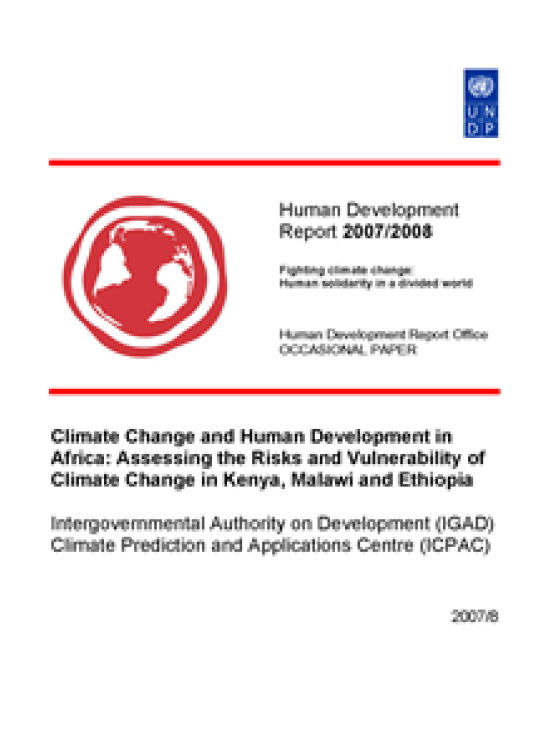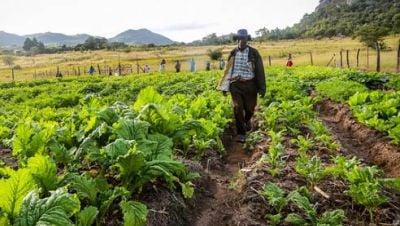Climate Change and Human Development in Africa
Assessing the Risks and Vulnerability of Climate Change in Kenya, Malawi and Ethiopia

Download Report by Language
Document
igad.pdf
(2.25 MB)
Citation
Intergovernmental Authority on Development (IGAD), Intergovernmental Authority on Development (IGAD). 2008. Climate Change and Human Development in Africa: Assessing the Risks and Vulnerability of Climate Change in Kenya, Malawi and Ethiopia. New York.
Climate Change and Human Development in Africa
Assessing the Risks and Vulnerability of Climate Change in Kenya, Malawi and Ethiopia
Posted on: January 01, 2008
Human induced climate change emanating largely from increase in the concentration greenhouse gases in the atmosphere and sustainable development are two closely related challenges facing human kind in the 21st century (Figure1.1). The challenges associated with the devastating effects of climate change (Table 1) has been addressed by the United Nations Framework Convention on Climate Change (UNFCCC) which calls for stabilization of the Greenhouse gases (GHGs) emissions in the atmosphere at a level that would prevent ‘dangerous anthropogenic interference’ with climate system, with a time frame sufficient to allow ecosystems and the environment as a whole to adapt naturally to climate change, to ensure that food production is not threatened, and enable economic development to proceed in sustainable manner. Africa is very vulnerable to the current climate variability including the recurrent droughts and floods. Today recurrent extreme climate events such as floods, cyclones, and droughts are devastating most economic, social and environment systems in Africa. The combined impact of HIV/AIDS, declining commodity prices and, in certain areas, conflict, has significantly reduced the capacity of poor households in Africa to cope with shocks of extreme climate events. The impacts of future climate changes on economies and livelihood assets in Africa will be very devastating. Climate change and existing climatic variability are likely to impact negatively on sustainable development plans of many African nations, and will almost certainly make the process of international, regional and national poverty reduction efforts to be only dreams due to the:
Likely negative effect on economic growth – the rate and pattern of which is critical to eradicating poverty;
Direct effect on poor people’s livelihoods and the assets upon which they depend; and
Increasing level of risk to which countries and people already extremely vulnerable to shocks are likely to be exposed.
There is urgent need for realistic adaptation options to reduce the vulnerability of environment, strengthen society livelihoods and economic systems, and cope with the consequences of current extreme climate variability and future climate change in Africa. Adapting to future climate changes would require developing systems capable of absorbing the current climate shocks and at the same time integrate future climate change risks. This report reviews climate change and human development in Africa with special reference to assessing the risks and vulnerability of climate Change in Kenya, Malawi and Ethiopia. The report presents the current state of global and regional climate change and projections for 2030 and 2050.

